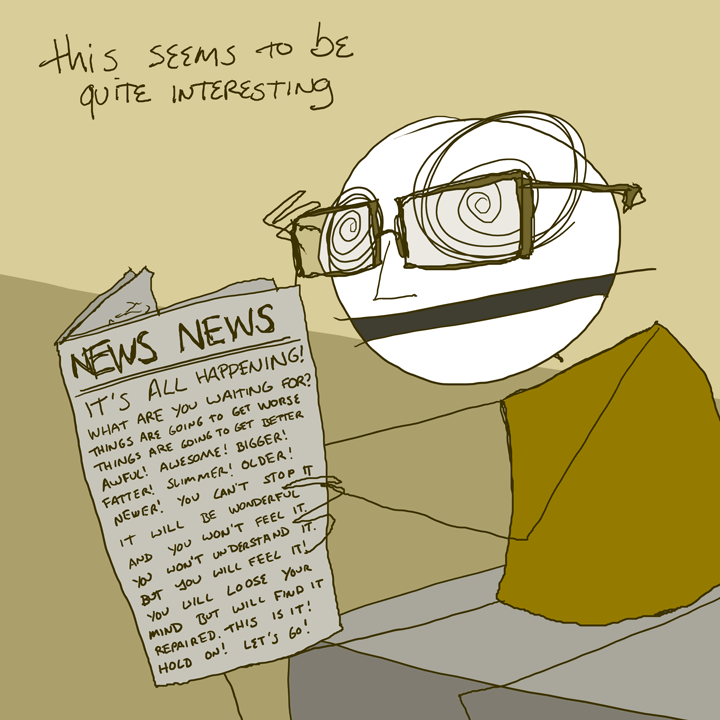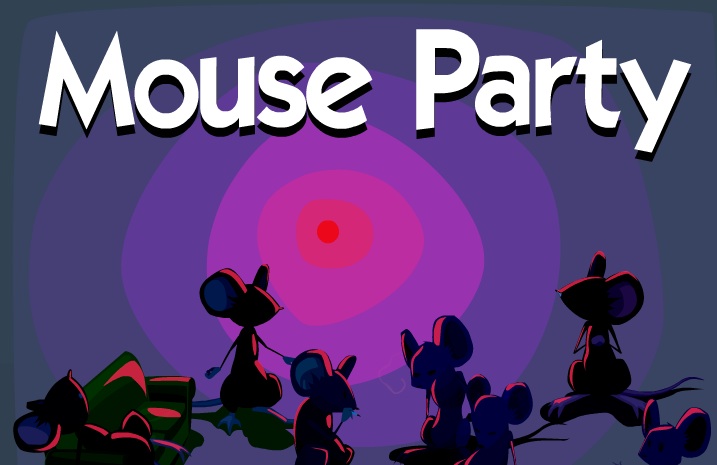Saturday, January 30, 2010
Wednesday, January 27, 2010
more articles
also just brought to my attention, and relevant to my previous post:
article in wired magazine on someone who does dare to raise eyebrows with his research: Carl Hart: The drug data pusher.
and other good ways of putting the argument, via The MacGuffin.
article in wired magazine on someone who does dare to raise eyebrows with his research: Carl Hart: The drug data pusher.
and other good ways of putting the argument, via The MacGuffin.
Tuesday, January 26, 2010
NYT article worth a read
in any event, what makes this a "whoa" is that as i was writing the application letter, i kept asking myself, is this argument even true? am i setting up a straw man to knock down, when in fact science policy is much more open-minded and equitable than i give it credit for? and then today, i came across this new york times article, laying my self-doubt to rest.
Researchers Find Study of Medical Marijuana Discouraged
it's worth a read. it lays out and illustrates the argument nicely.
and judging from NIDA-lady's comment, not only is inequity in science policy alive and well, it's also no secret. yeow.
but i, for one, think it's a shame that one side of an argument (any argument) should get all the publicity, while the other gets passive-aggressively silenced..... and that the receiving audience isn't the wiser for it.
EDIT 1/27/10: in fairness, i should mention that this morning i did come across this article from the newest issue of the journal drug and alcohol dependence: Is ecstasy a drug of dependence? (cliff's notes: the answer is "maybe, maybe not" rather than "well duh." baby steps.)
Saturday, January 23, 2010
Thursday, January 21, 2010
on chickens, eggs, and meth
I have previously mentioned predisposing factors and brain adaptations following drug use that contribute to personality traits some may, at first pass, consider part of a "weak mind." This paper, published a few months ago in the Journal of Neuroscience by my rockstar former office neighbor Bruce Lee (no lie -- he changed his name before he left, and to this day we can't figure out if he knew), illustrates what I'm talking about. The title, "Striatal Dopamine D2/D3 Receptor Availability Is Reduced in Methamphetamine Dependence and Is Linked to Impulsivity," kind of says it all, but click here for more details and thoughts.
Saturday, January 16, 2010
weekend roundup

i've been extremely busy the past two weeks, and have had no time for blogs - mine or others'.....while the items on my google reader just kept piling up. so today i turned off the phone, shut all the doors, and caught up with what's happening on the internets. below are the articles that caught my eye.
behold, the google reader round-up extravaganza, after the jump.
Tuesday, January 12, 2010
mouse party
short on time this week, so no rant.
but mouse party came up in conversation yesterday, reminding me of its existence, so i had to share. to nerdy minds like mine, this is endlessly entertaining. and extra commendable for being in the business of teaching children, not scaring them. so in the spirit of celebration, i present to you, mouse party!
but mouse party came up in conversation yesterday, reminding me of its existence, so i had to share. to nerdy minds like mine, this is endlessly entertaining. and extra commendable for being in the business of teaching children, not scaring them. so in the spirit of celebration, i present to you, mouse party!
Saturday, January 9, 2010
dummies' dilemma
i'm taking a break from my ongoing rant about just what is so infuriating about the "heroin for dummies" debate (a bunch of people got upset that their tax money went to a booklet illustrating safer injection practices for heroin), to spend some time on the subject of hypocrisy and double standards.........in the context of "heroin for dummies" :)
 i went to the dentist earlier this week, and while waiting for the doctor to come brutalize my molar (seriously, it took 2 shots and still hurt!), perused an issue of rachael ray's magazine, 'everyday.' flipping through it, i came across this illustration (click image to enlarge) on how to play the holidays' "lively celebrations" right..... or should i say, BOOZING FOR DUMMIES! DUN DUN DUN!
i went to the dentist earlier this week, and while waiting for the doctor to come brutalize my molar (seriously, it took 2 shots and still hurt!), perused an issue of rachael ray's magazine, 'everyday.' flipping through it, i came across this illustration (click image to enlarge) on how to play the holidays' "lively celebrations" right..... or should i say, BOOZING FOR DUMMIES! DUN DUN DUN!
any other day, i would have been delighted to see this. harm reduction at its finest. rachael ray isn't making you go out and booze, but she's looking out for you if you do. "eat food throughout." "order your drinks wisely." "avoid these traps." piece of valuable knowledge. dispelled myth. useful tidbit to keep in mind. you win! you are not sleepy-eyed (rachael ray for hung the eff over?) at the thanksgiving table. but this just so happened to occur the day after a bunch of glib news anchor types made a mockery of the same concept in relation to heroin, and the internet chimed in. the level of hypocrisy just blows my mind -- how does harm reduction spark such controversy when we're talking about one thing, but get a jazzy full page feature when it's another??
(much) more after the jump.
 i went to the dentist earlier this week, and while waiting for the doctor to come brutalize my molar (seriously, it took 2 shots and still hurt!), perused an issue of rachael ray's magazine, 'everyday.' flipping through it, i came across this illustration (click image to enlarge) on how to play the holidays' "lively celebrations" right..... or should i say, BOOZING FOR DUMMIES! DUN DUN DUN!
i went to the dentist earlier this week, and while waiting for the doctor to come brutalize my molar (seriously, it took 2 shots and still hurt!), perused an issue of rachael ray's magazine, 'everyday.' flipping through it, i came across this illustration (click image to enlarge) on how to play the holidays' "lively celebrations" right..... or should i say, BOOZING FOR DUMMIES! DUN DUN DUN!any other day, i would have been delighted to see this. harm reduction at its finest. rachael ray isn't making you go out and booze, but she's looking out for you if you do. "eat food throughout." "order your drinks wisely." "avoid these traps." piece of valuable knowledge. dispelled myth. useful tidbit to keep in mind. you win! you are not sleepy-eyed (rachael ray for hung the eff over?) at the thanksgiving table. but this just so happened to occur the day after a bunch of glib news anchor types made a mockery of the same concept in relation to heroin, and the internet chimed in. the level of hypocrisy just blows my mind -- how does harm reduction spark such controversy when we're talking about one thing, but get a jazzy full page feature when it's another??
(much) more after the jump.
Thursday, January 7, 2010
no one is addicted AT you.
the reason i was reluctant to set up a blog for so long is that i wasn't sure i had anything new to say to the world -- what choir wants another preacher, after all. but the "heroin for dummies" episode has shown me that maybe i'm wrong, and that maybe the ideas i take for granted aren't obvious to everyone. so with that in mind (and awareness that you may totally already know that), here is the first in a list of things i have to say:
1. drug addiction is a disease.
most people who got their panties all in a bunch over the injection booklet opposed its distribution on grounds like "they deserve the consequences of their habit" or "they won't read the booklets anyway." as if by virtue of their drug addiction, people automatically got stripped of their humanity. they are not animals, and they are not morons. they are people, who are suffering from a disorder, and presumably would prefer to continue living. so rather than arguing about how they got themselves into it (which ideally should be, but realistically can't always be, prevented), and holding them in contempt for their actions (which can be self-destructive and costly to others, but are perpetrated because that is the nature of the disease), a more humane approach would be to understand the disorder, admit that it's there (and recognize that wishing otherwise doesn't change that), and figure out realistic approaches for dealing with it.
the first step in understanding addiction is recognizing it as the chronic, relapsing disorder that it is -- and not blaming those suffering from it for showing the main manifestation of the disease: compulsive disadvantageous decision-making. click below to see what i'm talking about.
1. drug addiction is a disease.
most people who got their panties all in a bunch over the injection booklet opposed its distribution on grounds like "they deserve the consequences of their habit" or "they won't read the booklets anyway." as if by virtue of their drug addiction, people automatically got stripped of their humanity. they are not animals, and they are not morons. they are people, who are suffering from a disorder, and presumably would prefer to continue living. so rather than arguing about how they got themselves into it (which ideally should be, but realistically can't always be, prevented), and holding them in contempt for their actions (which can be self-destructive and costly to others, but are perpetrated because that is the nature of the disease), a more humane approach would be to understand the disorder, admit that it's there (and recognize that wishing otherwise doesn't change that), and figure out realistic approaches for dealing with it.
the first step in understanding addiction is recognizing it as the chronic, relapsing disorder that it is -- and not blaming those suffering from it for showing the main manifestation of the disease: compulsive disadvantageous decision-making. click below to see what i'm talking about.
Tuesday, January 5, 2010
you're supposed to be the good ones, cnn.
"As human beings we all want to be happy and free from misery.
We have learned that the key to happiness is inner peace.
The greatest obstacles to inner peace are disturbing emotions such as
anger and attachment, fear and suspicion,
while love and compassion, a sense of universal responsibility
are the sources of peace and happiness."
Dalai Lama
yesterday, i was pointed to this video of a segment that ran on CNN earlier in the day -- an 8-minute knee-jerk, probably in response to this article ("A New York brochure advising heroin users on how to shoot up in a more healthful way cost taxpayers $32,000, officials said."), full of thoughtless commentary, smug smirks, and condescending 'tude. i found the segment and its derisive and ignorant (albeit, as some pointed out, unsurprising) message infuriating, but as the day went on and the story made the rounds
all
over
the
internet
(props to dr. heimer in that last clip, btw - he's amazing), i was left just one thing: heartbroken. how are we STILL fighting this fight? and how is it that the judgmental and dismissive points of view of these smarmy-ass news anchors gain any amount of credibility? but judging from the number of commenters that agreed with them, there are plenty of people out there that buy into it. part of me wants to start philosophizing about the ugly side of human nature, but i think more than anything, ignorance is to blame. ignorance breeds rejection and fear, and a fearful mind cannot be compassionate. i think it's high time to change that.
in the coming posts, i hope to help reduce the harm of ignorant on-air commentary by proposing some things to keep in mind for future such stories (or maybe just intelligent debate). stay tuned.
Subscribe to:
Comments (Atom)



